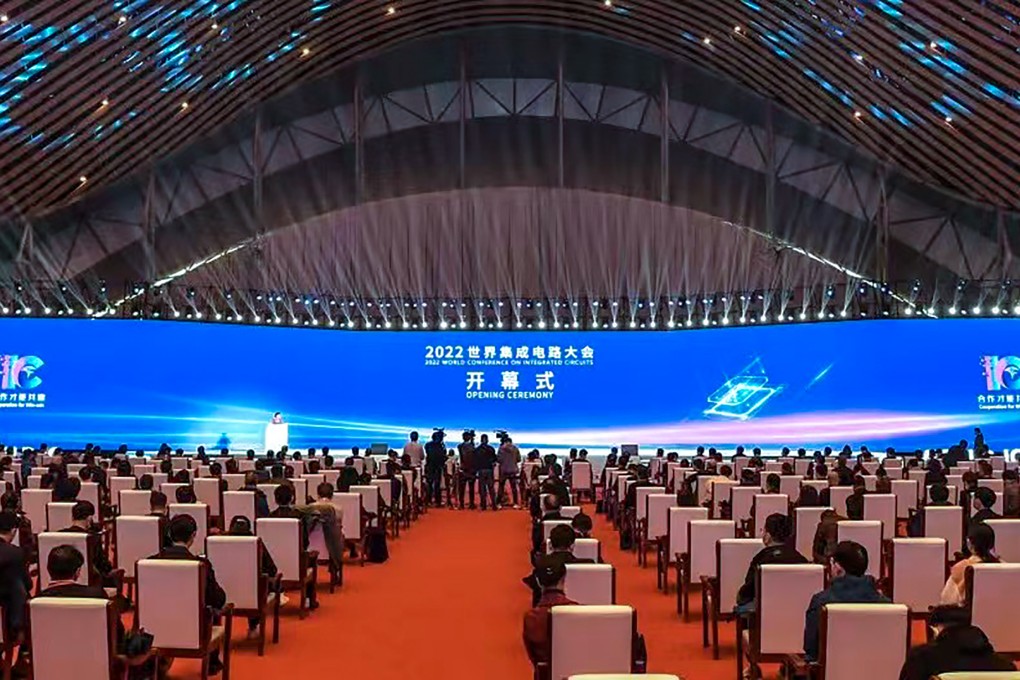Advertisement
Tech war: Chinese chip maker CXMT warns of harm arising from anti-globalisation sentiment to semiconductor industry innovation
- CXMT chief executive Zhu Yiming sees anti-globalisation hurting the capability of semiconductor companies to pursue innovation
- US export controls are ‘having a more chilling impact on the industry than expected’, according to the Semiconductor Industry Association
Reading Time:3 minutes
Why you can trust SCMP
1

Ann Caoin Shanghai
ChangXin Memory Technologies (CXMT), one of China’s top memory chip makers, has warned that rising anti-globalisation sentiment is harmful to innovation in the global semiconductor industry, the company’s chief executive said.
“The development of the integrated circuit [IC] industry must adhere to the general direction of marketisation,” Zhu Yiming, chairman and chief executive of CXMT, said on Thursday in his presentation at the 2022 Global Conference on Integrated Circuits in Hefei, capital of eastern Anhui province. The three-day conference concludes this Friday.
“Anti-globalisation will harm the capability and speed of innovation in the integrated circuit industry chain,” Zhu said. “[We] hope that semiconductor industry players can continue to promote cooperation [across supply chains worldwide] with a more open attitude.”
Advertisement
His remarks reflect the concerns of CXMT, which designs and manufactures DRAM chips, and its peers in China on the US government’s latest actions to hold back mainland semiconductor companies from producing advanced ICs.

“Not a single country, either in terms of supply chain or market size, is enough to support the huge investment [needed] in the integrated circuit industry,” Zhu said.
Advertisement
Advertisement
Select Voice
Choose your listening speed
Get through articles 2x faster
1.25x
250 WPM
Slow
Average
Fast
1.25x